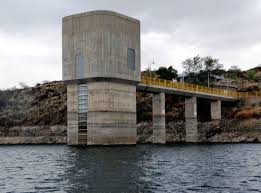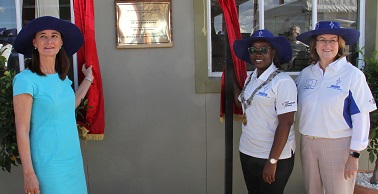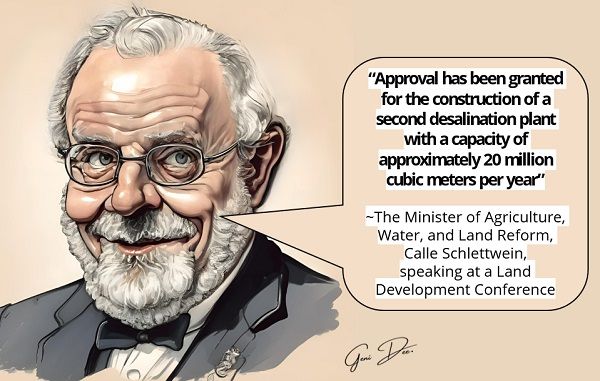
Protect or get wasted

O&L Corporate Relations Manager, Patricia Hoeksema told a conference on environmental compliance that many Namibian companies are ahead of the curve.
Patricia Hoeksema, Chairperson of the Recycle Namibia Forum and Corporate Relations Manager at the Ohlthaver & List (O&L) Group, addressed the Environmental Compliance Conference earlier in April in Windhoek, emphasising the fact that environmental responsibility is something that must be embraced collectively, from individuals to companies, SOE’s and the government.
She said globally many businesses realize that their ability to look after profits and people is increasingly dependent on planet. They are therefore investing substantially in environmental sustainability not only because their production inputs are limited and need to be managed sustainably, but also because they embraced their external responsibilities.
“In Namibia however, long before this international trend started, many businesses already embraced their environmental responsibility with the view of managing our scarce resources and preserving our beautiful country for future generations” she said.
“However, much more can be done if everybody embraces their responsibility to do the right things right as many institutions are not yet holding themselves accountable for their environmental impact”, said Hoeksema.
“The positive change we are seeing is the incorporation of great new technologies, [for instance] Namibia Breweries install Africa’s largest solar rooftop plant in 2014, and MPACT innovate to use treated waste water to make glue for the manufacture of cardboard boxes. Companies like Namibia Dairies are exploring Bio Gas options while Rent-A-Drum has invested heavily in the establishment of a Material Recovery Facility to sort and contain recyclables, while Plastic Packaging and Namibia Polymer Recyclers manufacture locally and create jobs through recycling of plastics. These are but a few examples of how Forum members have embraced innovation to support their commitment to sustainable environmental practices.”
Hoeksema said the Recycle Forum participated in the conference to share the environmental successes members have achieved in their own capacities, and through their involvement with the forum. “There are a number of organisations that have proven their commitment to environmental preservation by actively promoting the 3R’s. It is vital in this industry that we exchange best practice while stakeholders do everything they can to realize their environmental responsibility. The need to look after our environment stems largely from the implications of modern day society and the impact of globalization, population growth, shrinking agricultural production and consumerism. This creates the paradox of growing needs amidst a shrinking resource base, which is why it is in the interest of everyone to address the environmental dilemma,” she added.

















































